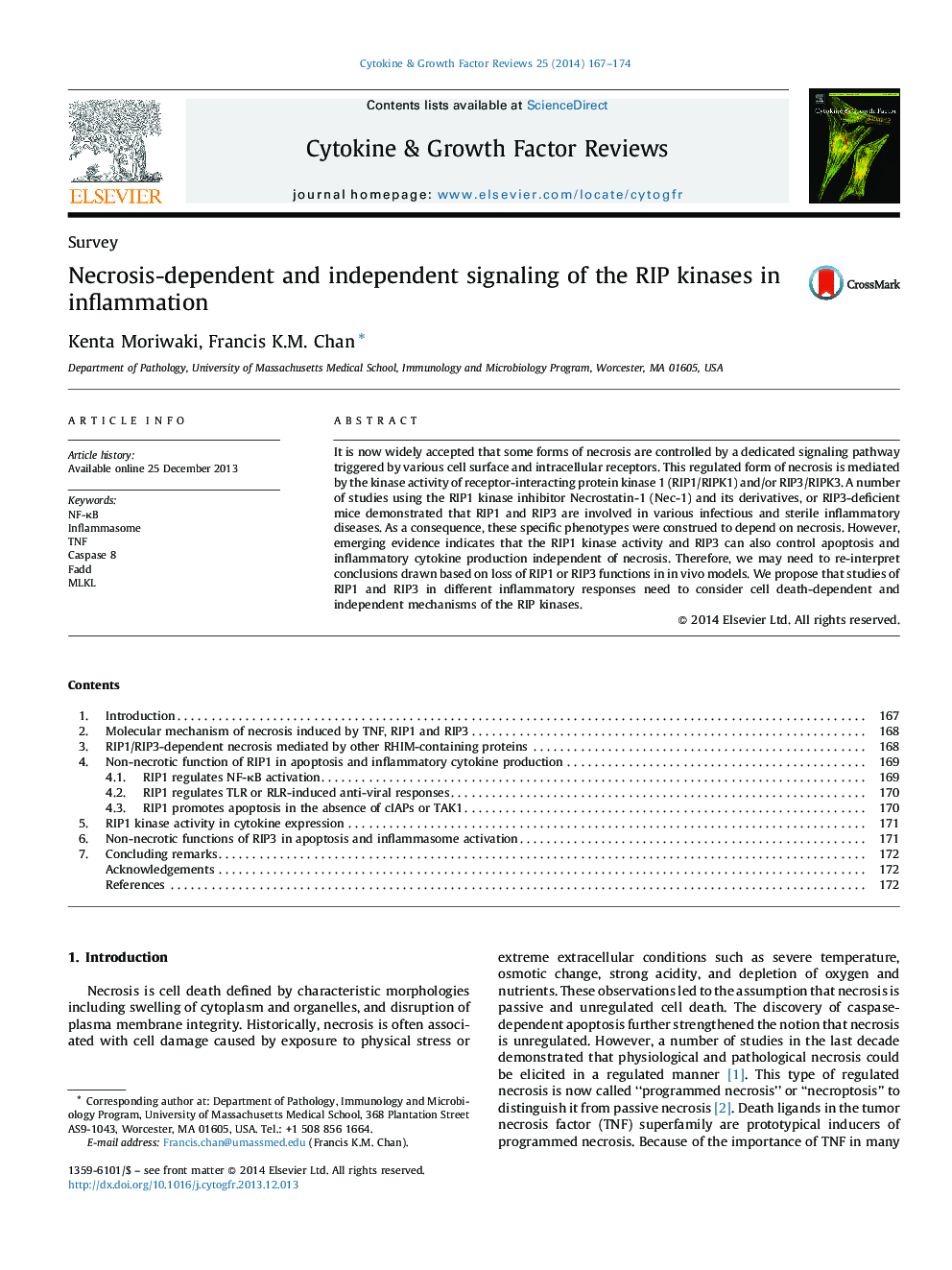| Article ID | Journal | Published Year | Pages | File Type |
|---|---|---|---|---|
| 2170482 | Cytokine & Growth Factor Reviews | 2014 | 8 Pages |
It is now widely accepted that some forms of necrosis are controlled by a dedicated signaling pathway triggered by various cell surface and intracellular receptors. This regulated form of necrosis is mediated by the kinase activity of receptor-interacting protein kinase 1 (RIP1/RIPK1) and/or RIP3/RIPK3. A number of studies using the RIP1 kinase inhibitor Necrostatin-1 (Nec-1) and its derivatives, or RIP3-deficient mice demonstrated that RIP1 and RIP3 are involved in various infectious and sterile inflammatory diseases. As a consequence, these specific phenotypes were construed to depend on necrosis. However, emerging evidence indicates that the RIP1 kinase activity and RIP3 can also control apoptosis and inflammatory cytokine production independent of necrosis. Therefore, we may need to re-interpret conclusions drawn based on loss of RIP1 or RIP3 functions in in vivo models. We propose that studies of RIP1 and RIP3 in different inflammatory responses need to consider cell death-dependent and independent mechanisms of the RIP kinases.
